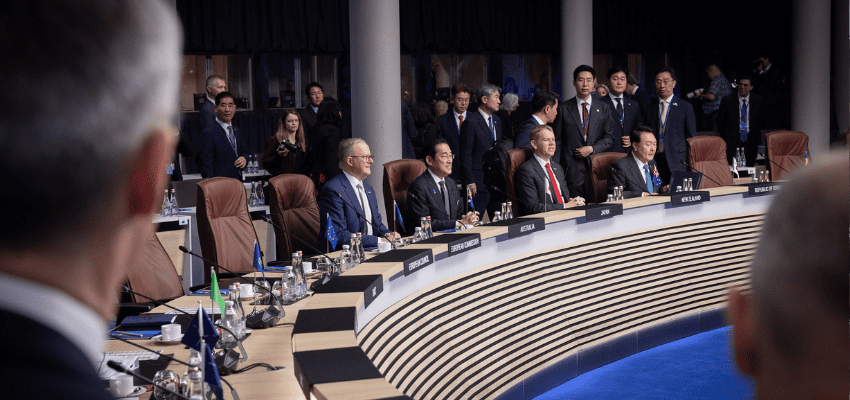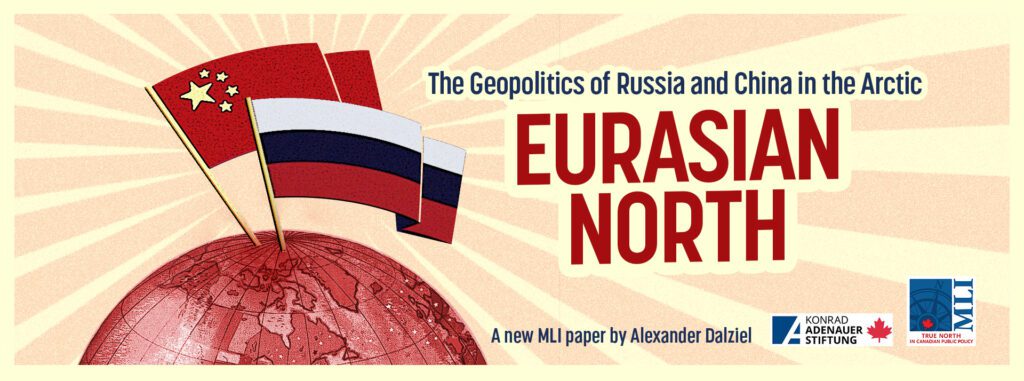This article originally appeared in East Asia Forum.
By Stephen Nagy, January 13, 2025
Russia’s invasion of Ukraine has highlighted the increased connectivity of war in modern times. Conflict in one part of the world cannot be separated from other regions. In June 2024, North Korea provided at least five million munitions to Russia. And more recently, North Korea sent an estimated 12,000–15,000 troops to fight Ukraine. China has also supported Russia’s illegal war through third countries and by propping up its economy through the purchase of energy.
Former Japanese prime minister Fumio Kishida voiced similar concerns at the 2022 Shangri-la Dialogue. In his keynote address to the annual security summit, he warned that ‘today’s Ukraine could be tomorrow’s East Asia’.
For NATO and its Indo–Pacific Four (IP4) allies — Australia, Japan, New Zealand and South Korea — Russia’s invasion serves as a cautionary tale about the potential for aggression from revisionist powers. It has prompted a re-evaluation of military readiness and collective defence strategies. Countries in the region, such as Japan and South Korea, have become acutely aware of the need to strengthen deterrence capabilities.
The situation has also galvanised NATO discussions about the importance of a cohesive response to aggression, emphasising the necessity of solidarity not only in Europe but across the globe. This is based on a convergence in understanding in NATO that ‘unilateral transgressions of the rules-based international order and other unexpected events will have dramatic domino effects all over the world’, requiring a coordinated response.
Key questions being asked in NATO–IP4 countries focus on how to properly resource a Taiwan contingency, or multiple contingencies, even without the added burden of supporting Ukraine as it defends its sovereignty against Putin’s Russia. Simply put, members currently have insufficient defence and munition resources due to underinvestment based on the post-Cold War illusion that military power and defence production capabilities were not necessary.
This insufficiency refers to the availability of munitions and arms and defence equipment that can be deployed immediately and continually in the case of conflict on multiple fronts. This includes but is not limited to bullets, protective equipment, drones and aircraft needed to deter an adversary in the Indo–Pacific or degrade its offensive and defensive capabilities.
In the context of AUKUS, Tom Corben and William Greenwalt from the University of Sydney’s United States Studies Centre have argued for the inclusion of a third pillar focused on reforming export controls. This would enable faster and more meaningful cooperation among the three countries in legacy munitions manufacturing and exports. Based on the NATO Industrial Capacity Expansion Pledge, NATO–IP4 collaboration, alongside potential partners like India, could fill these gaps by taking advantage of production potential in other countries allowing AUKUS members to focus on Pillars One and Two of the agreement.
The proposed third pillar of AUKUS, while constructive, presents problems. Embedding legacy munition and other defence equipment into the AUKUS partnership may risk being exclusive rather than inclusive. This approach could alienate potential partners such as India, Southeast Asian states, Canada or EU member states. Strengthening NATO–IP4 cooperation is therefore essential.
Maximising hubs for legacy munition manufacturing, storage and timely deployment across multiple contingencies requires a more inclusive partnership. Collaborating with partners in different geographic locations could help alleviate munitions and defence equipment deficiencies in the Indo–Pacific. This will require technology transfer to partners such as India and leveraging the manufacturing expertise of Japan, South Korea and others, ensuring that adequate resources, human capital and technologies are synergised for effective defence production.
Considering NATO’s geographic limitations, burden-sharing frameworks must be established to address multiple contingency scenarios. For example, one scenario could entail a simulation of how Japan, the United States and South Korea could coordinate resources during a Taiwan contingency that occurs simultaneously with a Korean Peninsula contingency. Another might be the response to a kinetic conflict in the South China Sea and the Taiwan Strait.
Burden-sharing, role division and resource allocation need to be systematically tailored to different scenarios to ensure an effective defensive response. While the United States may lead in simultaneous Korean Peninsula and Taiwan Strait contingencies, alternative partnerships — such as an Australia–South Korea–Japan minilateral or other frameworks involving NATO–IP4 — also need to be investigated.
These minilateral cooperation frameworks need not be just reactive in addressing multiple contingencies but could also be preventative. Establishing such minilateral cooperation frameworks would allow NATO–IP4 to leverage legacy munitions production and placement throughout the region, ensuring quick access to the tools necessary for deterring revisionist powers.
These initiatives contribute to deterrence, maritime domain awareness and shared security understandings. Developing NATO–IP4 coordinated diplomacy blueprints is essential for responding to multiple contingencies. Aligning measures such as financial and economic sanctions, shutting down sea lines of communication and establishing protocols to counter economic coercion and the weaponisation of supply chains are essential for mounting an effective, coordinated resistance.
To address the growing challenges associated with the connectivity of war and the possibility of multiple contingencies in the Indo–Pacific, NATO–IP4 members must coordinate defence and munition resource production, burden-sharing planning and diplomacy.
Stephen Nagy is Professor in the Department of Politics and International Studies at the International Christian University, Tokyo, Senior Fellow at the Macdonald-Laurier Institue and Visiting Fellow at the Japan Institute for International Affairs.







